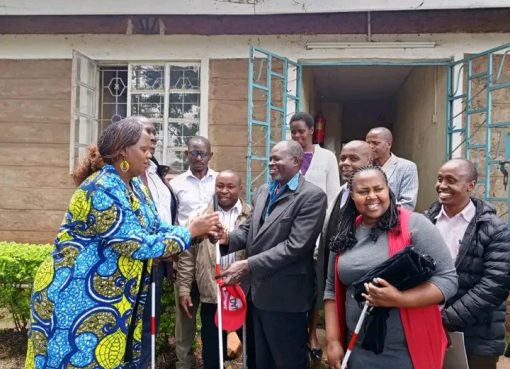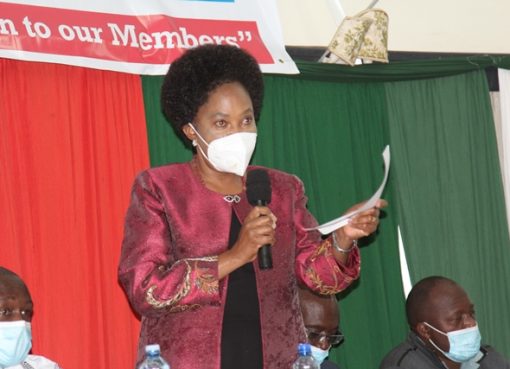At least 20,000 farmers in the Eastern region can now access climate smart seeds, thanks to more than 300 community growers who produced over 20 metric tons of drought-tolerant crops, resistant.
The producers have been working with the Kenya Crop Dairy Market Systems (KCDMS) a USAID project designed to increase agricultural production, processing, and marketing of seeds for Drought Tolerant Crops (DTC).
John Kimanthi, a beneficiary and Executive Director of Unyamandu Seed Merchant in Kiuziani market in Yatta-Kwa Vonza ward in Kitui Rural sub County told KNA that as a group that started way back in 2009 and doing water projects and supporting orphans and vulnerable children, they decided to become a seed producing CBO in order to increase food security.
“We were later registered by Kenya Plant Health Inspectorate Service (KEPHIS) as seed merchants and have taken up production of climate-smart seeds to cushion farmers against climate change shocks”, he explained.
Kimanthi further said that they work closely with the Kenya Agricultural and Livestock Research Organization (KALRO) which has licensed them to use their breeder materials to produce seeds.

“Since 2020, we have been producing drought-tolerant crop seeds adapted to semi-arid areas. We have been licensed by KALRO to produce the greening gram-Karembo variety and the Biashara variety. We also produce cowpea-K8 varieties,” he added.
He explained that they train seed-out growers and credit seeds to them to go and plant and take good care of them and once they are approved by KEPHIS they are harvested, and cleaned and they in turn buy from the same farmers, package them in branded bags of 2000 grams.
He noted that the sticker issued by KEPHIS after certification has really helped them as farmers and customers are able to verify by scratching the number and sending it to 1393 to get the full details of the seed, the variety, the class and the company that has processed it showing authenticity,” if you look at our certificate from the lab test, the purity of our seed is 99.6 percent” Kimanthi said.
“We sell directly to the farmers. We also sell through agro-dealers as well as the government and NGOs. The KCDMS programme which supported training farmers saw last season us managing to produce 9.5 tons of green gram Biashara variety and 4.5 tons of cowpea and accrued benefits.
The seeds, he explained are well adapted to the semi-arid areas so the yields are quite high, He said that from a ton of cowpea, a farmer can produce five bags up to 70 bags of 90 kgs and from one acre of cowpea, you can produce five bags of 90 kgs to 70 bags showing they are high yielding, they are drought tolerant and they are resistant to the diseases.
“Because we want our farmers to have the best harvest in terms of the quality and also the quantity, we do soil testing through collaboration with partners. Once we know the status of the soil, the agro vet that we work with then advises the farmer(s) on whether to put lime or which fertilizer to use,” Kimanthi added.
The partnership with the USAID, Kimathi explained, has also seen the capacity of seed growers strengthened through training and continuous mentorship with most farmers who used to get about two bags of green grams now averaging about four bags due to the training.
Jane Biashara, market systems lead in the Kenya Crops and Dairy Market systems (KCDMS) project in the Eastern region which covers Makueini, Kitui, and Taita Taveta counties said they were working with seed merchants to cushion farmers against microeconomic shocks.
“With consistent or continued drought, the seed is affected. Using the market systems, we are working with seed merchants and supporting them under the project.
She explained that when they came in, production was below one ton per year but they had the potential because they had land and therefore through training of about 120 seed growers in partnership with KALRO and KEPHIS, they were supported with seeds which they planted in over 336 acres of land and produced DTC seeds.
Biashara said that the five-year USAID-funded project started in 2018 as a major project for agriculture and during the exit time in November 2022, there was an extended drought and also due to the Ukraine war which heavily impacted the agriculture sector, USAID extended the project for another eight (8) months and is now almost winding.
In Kenya Seed access challenges facing Small Scale Farmers are poor quality seeds, low access to reliable information, and also climate change.
By Wangari Ndirangu




